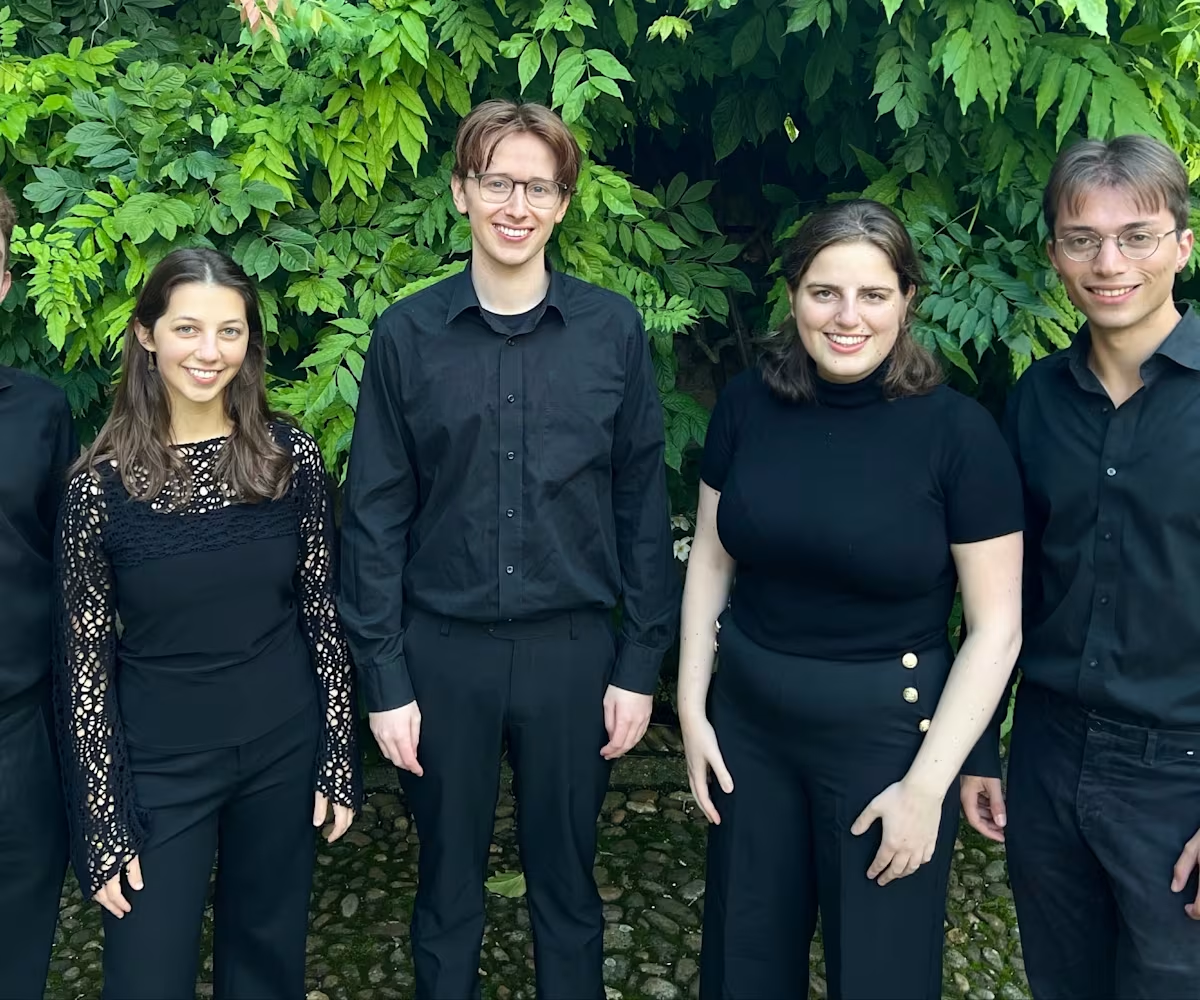Bruegel Consort
Lily of Eternal Praise
Marian devotions in late-medieval England

This programme paints a colourful portrait of the extravagant and expressive musical devotions to the Virgin Mary prevalent in late-medieval England. Mary was the most celebrated divine figure during this period second only to Christ, and in England it was common in countless institutions for the choir to sing elaborate, large-scale polyphonic works in dedication to the Virgin at the end of the day. This programme features three such works, two drawn from the Eton Choirbook: Salve regina by Richard Hygons (c.1435-1509), a composer based at Wells Cathedral; and a neglected setting of the Stabat mater dolorosa, a pained reflection on the events of the Crucifixion through Mary’s eyes, by the Oxford-based composer Richard Davy (c.1464-1538). At the core of the programme, and providing its title, is the Chapel Royal composer Robert Fayrfax’s (1464-1521) Eterne laudis lilium, composed around Easter in 1502 on commission from Elizabeth of York, wife of King Henry VII. Interspersed amongst these larger works are several Marian plainchants drawn from early sixteenth-century English sources and two short polyphonic settings of Stella celi, a text petitioning Mary for protection from the plague.
 Tue, 17 June 2025
Tue, 17 June 2025 Trinity College Chapel, Cambridge
Trinity College Chapel, Cambridge 8:00pm
8:00pm Free entry (retiring collection)
Free entry (retiring collection)
Full Event Details

Join the Bruegel Consort for an evening of sacred vocal music from late-medieval England.
This programme paints a colourful portrait of the extravagant and expressive musical devotions to the Virgin Mary prevalent in late-medieval England. Mary was the most celebrated divine figure during this period second only to Christ, and in England it was common in countless institutions for the choir to sing elaborate, large-scale polyphonic works in dedication to the Virgin at the end of the day. This programme features three such works, two drawn from the Eton Choirbook: Salve regina by Richard Hygons (c.1435-1509), a composer based at Wells Cathedral; and a neglected setting of the Stabat mater dolorosa, a pained reflection on the events of the Crucifixion through Mary’s eyes, by the Oxford-based composer Richard Davy (c.1464-1538). At the core of the programme, and providing its title, is the Chapel Royal composer Robert Fayrfax’s (1464-1521) Eterne laudis lilium, composed around Easter in 1502 on commission from Elizabeth of York, wife of King Henry VII. Interspersed amongst these larger works are several Marian plainchants drawn from early sixteenth-century English sources and two short polyphonic settings of Stella celi, a text petitioning Mary for protection from the plague.
Venue Details & Map

Location
Trinity College Chapel, Cambridge
Trinity College Chapel, Trinity Great Court, Cambridge CB2 1TQ

